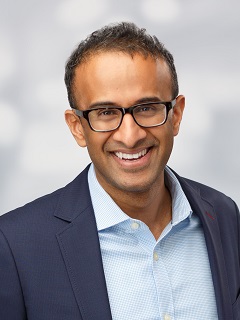The world as we know it has changed. And it has exposed the fragility and vulnerability of our existence. A public healthcare issue in Wuhan, China created unprecedented challenges across the globe. This set in motion a global economic slowdown. From volatility in global oil prices and political unrest to joblessness across the world, there is now a clear inflection point that challenges the order of life as we knew it; and it has had an impact on our people, our communities, and our businesses. This includes people losing pay, companies laying off employees, and the shutting down of thriving small businesses and promising start-ups. At the same time, these challenges are creating a lot of opportunities, enabling creative thinking, and catapulting innovative solutions to prime time that otherwise might have not been invented, discovered, and/or come into existence for a long time.
While there are a lot of predictions as to what will change, who will survive, and what will be new, these events should force any responsible leaders in any industry to pause, reflect, and reprioritize what’s personally important and what’s important to their people and their communities. This is especially true in the context of leaders responsible for integrated risk, compliance, resilience, and assurance, who now have a new set of rules to govern by, and a new set of risks that requires a change in mindset that involves more than simply establishing controls for the sake of compliance. As one organization stated, “We have to revisit and rewrite all our assumptions related to our continuity planning, employee onboarding, and crisis management”.
If you are a leader in cyber, technology risk, operational risk, third-party security, or internal audit, you are already facing the challenges of this new reality. This might just be the time for you to revisit your vision, guiding principles, roadmaps, and more importantly, evaluate how your stakeholders are faring in the larger context of today’s environment and their focus on staying the course in the future. Moreover, it can help you acquire and attune your mindset to transform yourself, your peers, and your joint responsibilities.

